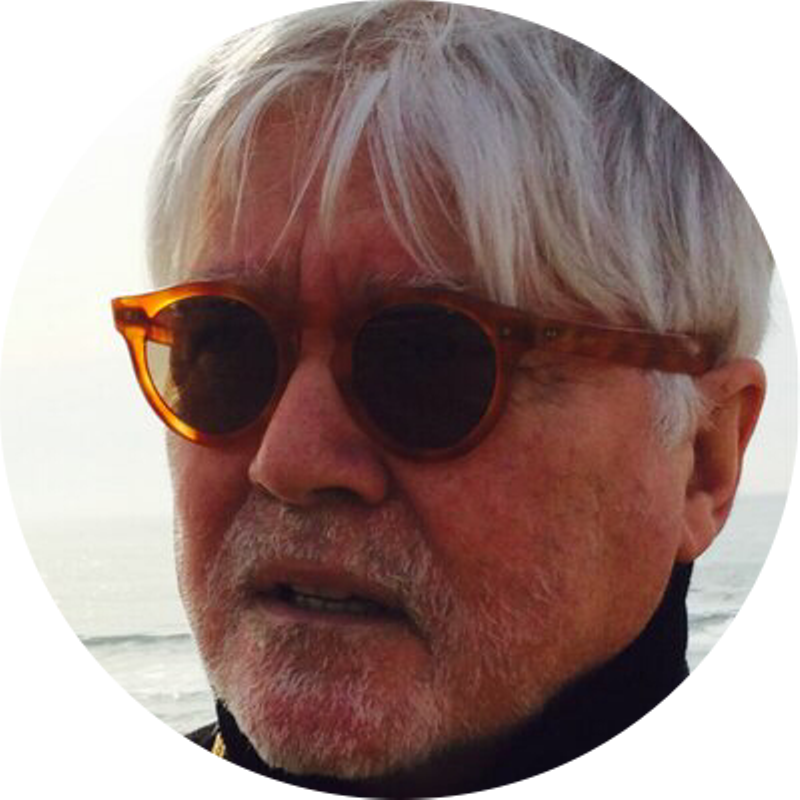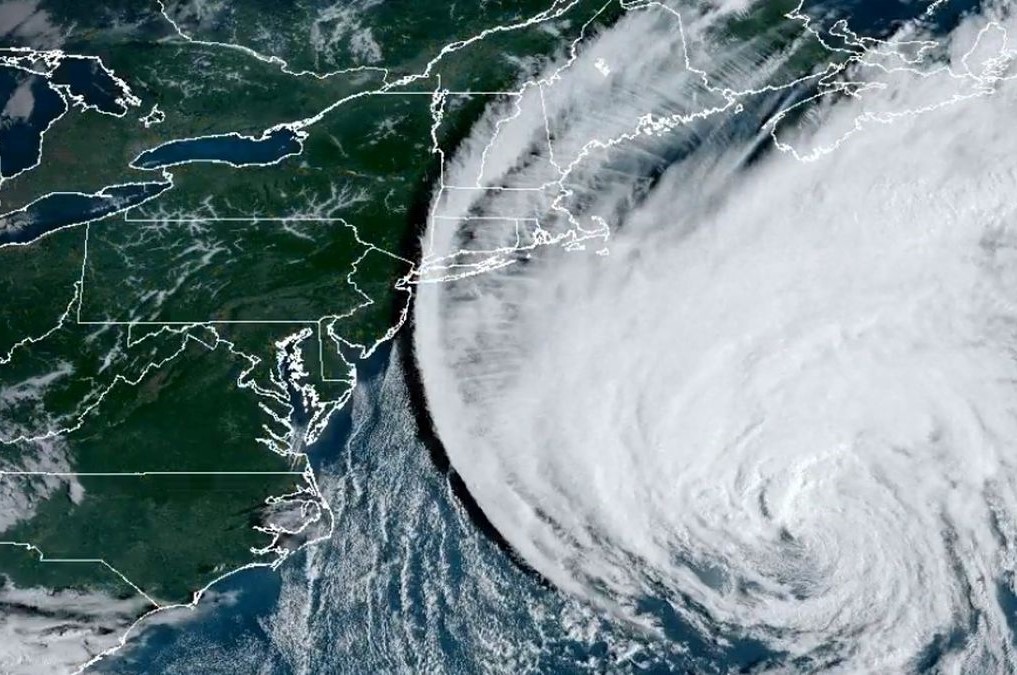Hurricane Lee pounced like a big cat.
The day before, I secured the garden furniture, removed the umbrella on the patio table, and pushed all the potted plants to places where I hoped the wind would not find them.
For the first time, I took down the Ukrainian flag that has been hanging on the clothesline since the Russian invasion.
When the wind blows, it flaps to and fro. The deer that wander into the yard (they have turned my raised garden into their salad bar), attack it as if it were a matador’s cape. It has several rips and tears from their antlers, but has survived for over a year. I didn’t want to lose it to the hurricane.
But there was something in the air that made all my little preparations seem slightly ridiculous.
A yellowish tinge to the sky, the air electric with the enormous force closing in on Nova Scotia, and the looks on people’s faces as they gathered their storm supplies — food, batteries, gasoline and some of that magic concoction that helped the late Jimmy Buffet hang on in Margaritaville.
Everyone looked slightly older and slightly more weary. Too many natural disasters these days, too much stress trying to keep noses above water. And behind all that, COVID back on the loose like a zombie popping up out of its grave.
I still remember the day I flew into Halifax from a writing trip, only to discover that White Juan had struck with a vengeance. There had been no indoor spots the day I left Stanfield International Airport, so I had parked on the roof. My pickup truck was buried to the hood.
And so I waited for yet another big storm. Would it be another Juan or Fiona? Would it turn at the last minute and veer away to strike some other unlucky place? Or would a doomed part of Nova Scotia get the force of the storm head-on?
There is no insomnia quite like hurricane insomnia. While there was still power, I watched the people on television warn that Hurricane Lee would pack wind gusts of up to 120 kilometres per hour, enough to knock down trees like bowling pins. That is cold comfort when your house is surrounded by 30 gigantic Norwegian spruce.
So I lay in bed, wide awake, listening for Lee to arrive in Lunenburg. For a long time, there was nothing but the sound of silence, which only heightened the sense of uneasiness. Then it began.
It started with rain — a deceptively barely audible shower that soon became a torrent. The downpour pounded the skylights in the house like a drum.
Around midnight, the wind came in hard and fast. The rain now came horizontally, driven by the same prodigious gusts that pushed down the tree-tops, and rocked even their biggest limbs.
At times, the trees appeared to be shivering, every branch and leaf atremble. But when the wind found its voice, part growl, part howl, that quickens the nerves of anyone who hears it, the smaller trees doubled over. Just three hours after the storm started, the lights went out.
A few hours later, a notice arrived on my cellphone. The power would be out for one or two days, the power company said. Strange how our habits betray us. “No hot coffee,” I thought.
I ventured out with a torch to see if my storm preparations had held, or if any major limbs were down. For a moment, I toyed with the idea of donning my hockey helmet.
The first thing I noticed was that Lunenburg might as well have been the tropics. The warmth and humidity were more Martinique than the Maritimes. Then a gust of wind gave me a shove like an over-zealous bouncer guarding the club door when there is no more room inside.
Towards dawn, I grew tired of listening to Lee’s unrelenting growl, tired of anticipating the crack of a giant tree coming down on the house. Even though I knew there was absolutely nothing I could do about it, I went outside to take another look. Even a futile act confers a little relief, or so I have discovered.
The lawn was strewn with leaves and small branches, but nothing major had fallen to Lee, at least not yet. All the furniture was snug under the tree where I had tipped it over out of the wind.
But there was something surprising. Lunenburg, like the moon it was named for, had a dark side and a bright side. My side of town was in darkness, but the other side clearly had power.
It was probably not the smartest thing I have ever done, but I am a restless sort of person in a storm. I got in my truck and drove through town, stopping to pick up the mail.
It’s funny how habits somehow reassure us at tense moments. Pick up the mail, everything’s alright. The roads were mostly clear, and the drive-thru at Tim Hortons was blocked with cars. It was nice to know that I was not the only fool for hot coffee.
My caffeine fix got me to thinking. Today it is Nova Scotia that is being pummelled by a hurricane.
Before Lee arrived, wildfires ravaged this province, as well as major parts of British Columbia, Ontario and the Northwest Territories.
Overseas, the world is reeling from deadly floods, typhoons and prolonged drought. The storm of the century seems to come every two weeks these days.
I found myself unexpectedly and quietly angry. We are guilty of elder abuse of Mother Nature, I thought. Science has indicted us. We are the ones who have given the planet a fever.
And it is that fever which has spawned the catastrophic events that are now routine items on the evening news. We are numb to the environmental Waterloo that approaches, storm by storm, wildfire by wildfire.
And worst of all?
The political party that the polls say would form a majority government if an election were held now, the Conservative Party of Canada, has no coherent policy on climate change. As recently as 2021, the party would not even admit that climate change is real. Now Pierre Poilievre wants to axe the carbon tax and increase the use of fossil fuels.
No one knows how the world will end, but the cause might well be short-term thinking on the part of myopic politicians. How, I wondered, as the winds roared and the rain pelted down, could fossil fools convince Canadians that increasing exports of natural gas is the way to planetary salvation? It is really by a direct route the shortest path to more Hurricane Lees.
My thoughts had taken me to a sullen place. Then I happened to gaze out the window into the back garden.
There, where they usually are on fine days, were the finches, blue jays and pigeons. Hurricane or no hurricane, they were hungry. I had taken down the feeder, and the birds, their feathers ruffled by the gale, pecked at the ground in a desultory fashion. They looked puzzled.
“We’re all in this together” I thought. I pulled on my coat and hung the feeder back up in its regular place. Before I got to the backdoor, the birds were on the feeding stations. I got my hot coffee and they got their sunflower seeds.
In the world of little things, it felt good to see the birds on the feeder on a tough day. But in a hurricane, the wind is there to tell you about a big thing we continue to get wrong. Earth needs healing, not wheeling and dealing. For those who think there’s loads of time to deal with climate change, consider this: If you don’t do it until you have to do it, it is usually too late.
How many wake-up calls does Mother Nature have to give us before we are roused from our deadly torpor? ![]()
Read more: Environment

















Tyee Commenting Guidelines
Comments that violate guidelines risk being deleted, and violations may result in a temporary or permanent user ban. Maintain the spirit of good conversation to stay in the discussion and be patient with moderators. Comments are reviewed regularly but not in real time.
Do:
Do not: